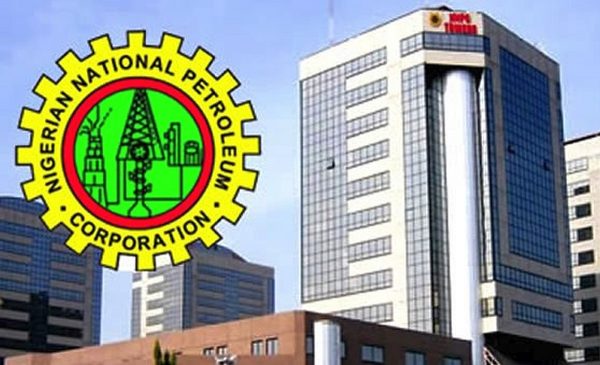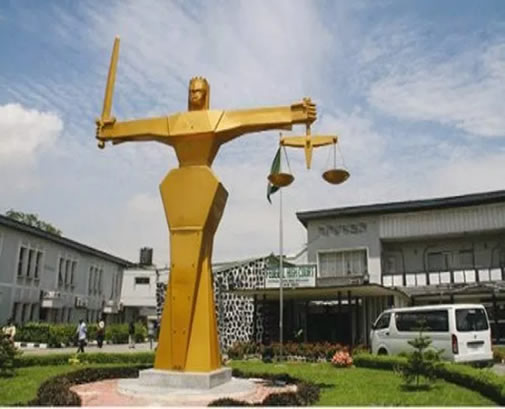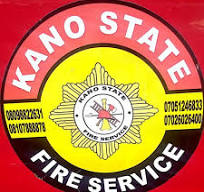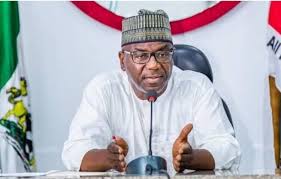Oil & Gas
DPR Set to Grant NDPR Modular Refinery Licence
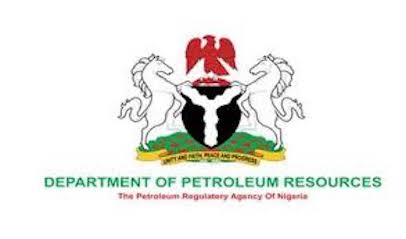
The Department of Petroleum Resources (DPR), says plans are ongoing to grant Niger Delta Petroleum Resources Ltd. (NDPR) licence to operate its 1000 barrel per day Modular refinery that will be inaugurated soon.
NDPR is a subsidiary of Niger Delta Exploration & Production Plc.
(NDEP).This was made known in a statement issued by Mr Sarki Auwalu, the Director/Chief Executive Officer (CEO) of DPR in Abuja yesterday.
He commended the giant strides of NDPR in pioneering modular refineries in the country.
According to him, the move is in line with DPR’s drive to realise the objectives of the Economic Recovery and Growth Plan (ERGP) and other similar Federal Government initiatives aimed at deepening local refining in Nigeria
“Having achieved these giant strides, the DPR is set to grant NDPR a ‘Licence to Operate’ (LTO) the plant expected to be commissioned soon.
“This laudable project is expected to catalyse further growth of the Nigerian refining industry by attracting more investments as more players gain confidence,” he said.
He said that in addition to its maiden 1000 Barrels per Day (BPD) Diesel Topping Refining Plant, NDPR had consolidated on its capacity by expanding the plant with an additional 5,000 BPD.
The expansion, he said would provide for other products slate to include kerosene, marine diesel and heavy fuel oil to cater for the Nigerian market.
“The expanded plant located at Ogbele, Ahoada in Rivers State will potentially reduce importation of petroleum products with corresponding savings in foreign exchange and employment generation for our teaming youths.
“Furthermore, major equipment and units of the second (2nd) Train of 5,000 BPD have been fabricated, inspected, tested and modules are currently being shipped to Nigeria.
“When installed, the upgraded refining complex will bring the total refining capacity to 11,000 BPD,” he said.
According to him, it will then have the requisite units to produce diesel (512,775 litres/day), kerosene (317,205 litres/clay), marine diesel (281,907 litres/day) and heavy fuel oil (234,525 litres/day), and particularly Premium Motor Spirit/gasoline (168,540 litres/day).
He said that the DPR provided necessary regulatory guidance and technical support throughout the project development phases for NDPR to contribute about 4.2 per cent of national daily diesel demand and about o.4 per cent for gasoline in Nigeria.
Auwalu then directed all modular refineries ‘Licence to Establish’ (LTE) holders to demonstrate expected performance within the two years validity of the Licence to enable them obtain ‘Approval to Construct’ (ATC) and other milestone approvals. (NAN)
Oil & Gas
NNPC Ltd. Disclaims Fake Financial Scheme

The Nigerian National Petroleum Company Limited (NNPC Ltd.) has disowned a fake AI-generated video circulating on social media featuring a cloned voice of the Group CEO, Mr Bayo Ojulari, promoting a fictitious poverty alleviation scheme.
The Chief Corporate Communications Officer, NNPC Ltd.
, Olufemi Soneye in a statement on Thursday clarified that the company had no such investment initiative.Soneye urged the public to disregard the video, originally shared by an account named Mensageiro de Cristo on Facebook.
“NNPC Ltd. has warned the perpetrators to cease their fraudulent actions or face legal consequences,” he said. (NAN)
NEWS
NGEP Urges Gas Reticulation In Buildings

By Olasunkanmi Onifade
Abuja, April 29, 2025 The National Gas Expansion Programme (NGEP) has called on stakeholders to promote the integration of gas reticulation systems in estates, districts, and industrial areas, following best practices seen in developed countries.
Chairman of NGEP, Prof.
Mohammed Ibrahim, made the call on Tuesday during the Builders’ Conference and Annual General Meeting of the Nigerian Institute of Building (NIOB), FCT Chapter, in Abuja.The conference, themed “Gas Reticulation in Building: Design, Safety, Environmental Compliance and Prospects for Builders,” focused on enhancing energy infrastructure in Nigeria’s built environment.
Ibrahim noted that with Nigeria’s vast natural gas reserves, gas reticulation offered a sustainable solution to improve energy accessibility, affordability, and reliability in homes and businesses.
“Gas reticulation in buildings presents a compelling pathway to a more sustainable, efficient, and resilient built environment.
“By prioritising sound design principles and ensuring strict adherence to safety and environmental standards, we can unlock the full potential of natural gas to drive progress,” he said.
He highlighted the key benefits of gas reticulation, including energy efficiency, cost effectiveness, versatility, and reliability.
Also speaking, the Chairman of the Council of Registered Builders of Nigeria, Samson Opaluwah, stressed the importance of capacity building for safe and efficient gas distribution.
He said this involved training engineers, technicians, and other professionals in system design, installation, and maintenance, while also strengthening regulatory frameworks and encouraging local innovation and manufacturing.
The Chairman of NIOB, FCT Chapter, Usman Okehi, emphasised the growing need to incorporate gas systems in residential, commercial, and industrial developments across Nigeria due to rising energy demands and gas availability.
According to him, with this advancement comes the need for strict adherence to design standards, rigorous safety protocols, and full environmental compliance.
“It is our responsibility as professionals and regulators to ensure these systems are functional, safe, and environmentally sound,” Okehi said.
He described the conference as a platform where stakeholders could explore the evolving landscape of gas infrastructure in building projects, share best practices, examine safety and environmental considerations, and assess future opportunities for builders in the sector.
The News Agency of Nigeria (NAN) reports that the Nigerian Institute of Building is the professional body for builders in Nigeria. It traces its origins to the Builders’ Society, established in London in 1834.
Oil & Gas
FG Inaugurates Committee to Enhance Gas Distribution in Urban Buildings

The Ministry of Petroleum Resources has inaugurated a Technical Working Group to enhance gas reticulation practices in Nigeria’s building industry.
The ministry’s Permanent Secretary, Amb. Nicholas Ella inaugurated the Technical Working Group (TWG) between the National Gas Expansion Programme (NGEP) and the Council of Registered Builders of Nigeria (CORBON) on Wednesday.
Reports= says that reticulation refers to the process of creating a network of pipes or tubes to distribute gas or other utilities to buildings or industrial sites.
The permanent secretary restated the importance of creating energy smart cities, saying that modern urban development relies on efficient gas and utility distribution systems,
“Most modern cities in developed countries have evolved to energy smart cities where energy, specifically gas and other utilities are piped to districts and estates.
“However, one of the key tools in creating energy smart city is the National Building
Code which, in essence, sets the guidelines on Building Pre-design, designs, construction and post-construction stages,” he said.
The permanent secretary reiterated the benefits of reticulated gas systems for households and businesses alike, adding that it ensured metered supply akin to water and electricity,
According to him, it eliminates the need for cumbersome refills, and also enhances safety by burying pipes and incorporating advanced safety equipments.
“The TWG is tasked with designing a comprehensive policy to implement best practices for gas reticulation using LPG, PNG, and Bio-Gas across Nigeria’s building sector.
“Key responsibilities include reviewing the current National Building Code, examining global gas distribution systems, and proposing quality standards for materials used in gas installations,” he said.
The permanent secretary emphasised the need for rigorous safety protocols and guidelines to ensure the efficient and safe use of gas in construction.
He urged the group to prioritise environmental sustainability in its recommendations, adding that the group is expected to submit its report by Nov. 15.
Earlier, Mr Samson Opaliwah, the Chairman of CORBON. expressed the council’s commitment to collaborate with the group to ensure safe uptake of gas for use in houses and housing estates in Nigeria.
“I assure you of the williness of CORBON to leverage the expertise and resources at her disposal to ensure that steps are put in place for gas infrastructure in buildings and estates.
“The gas infrastructure will be safe, sustainable and world-class.
” Our collective efforts will yield clear, standardised guidelines for safe and effective gas systems in buildings, matched with a skilled workforce to meet growing demands in Nigeria,” he said. (NAN)

